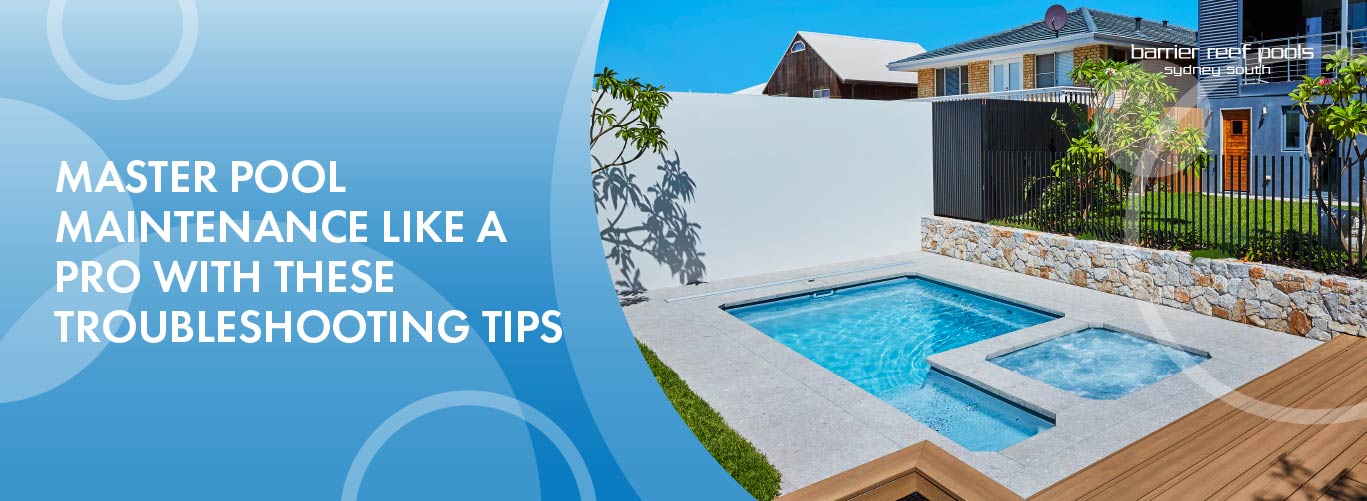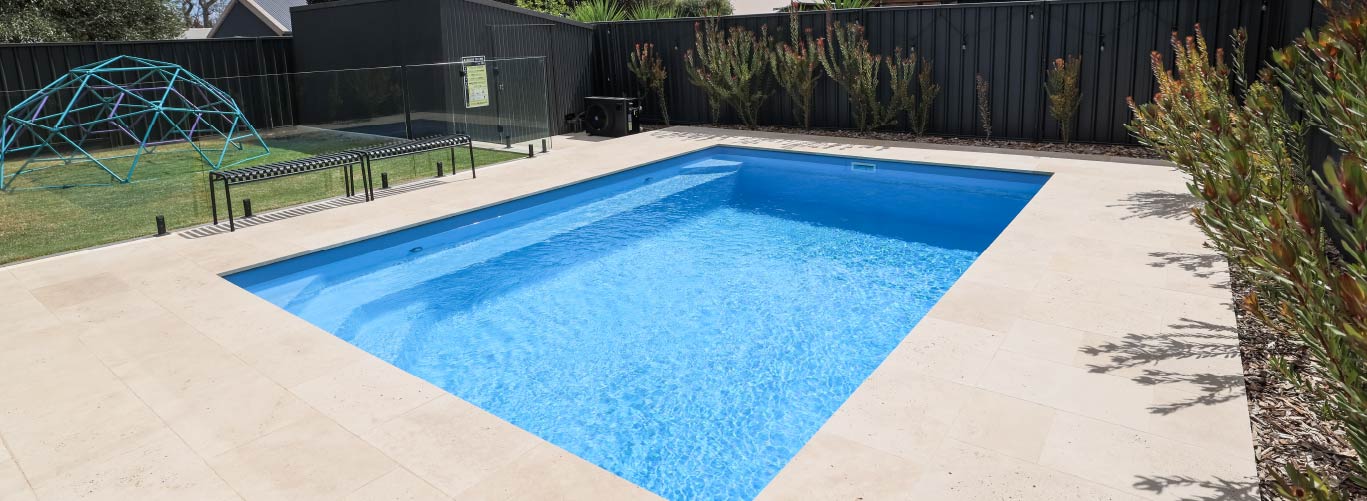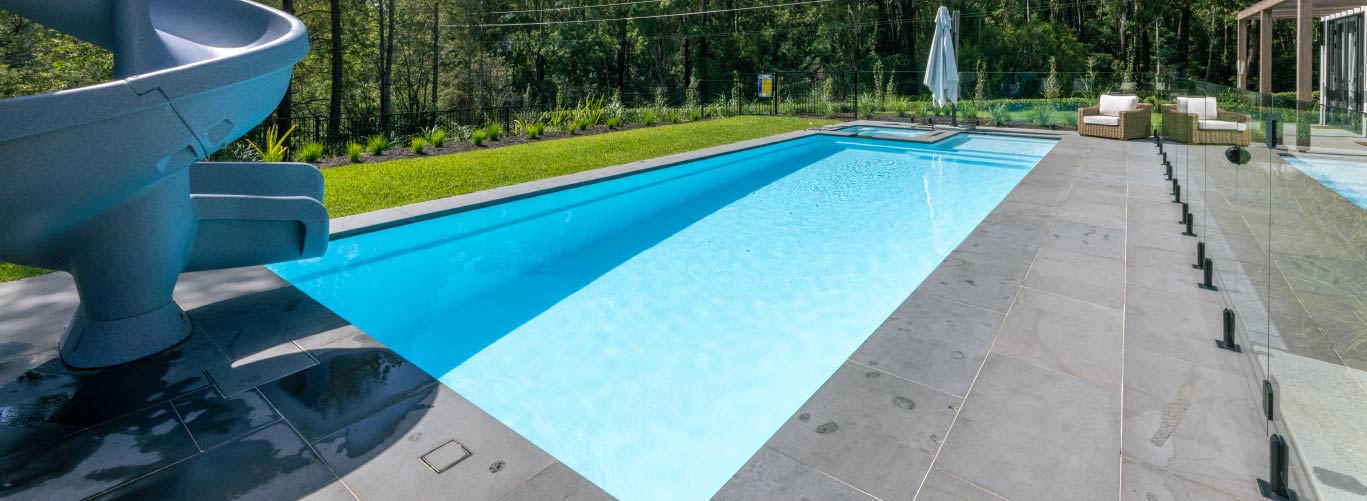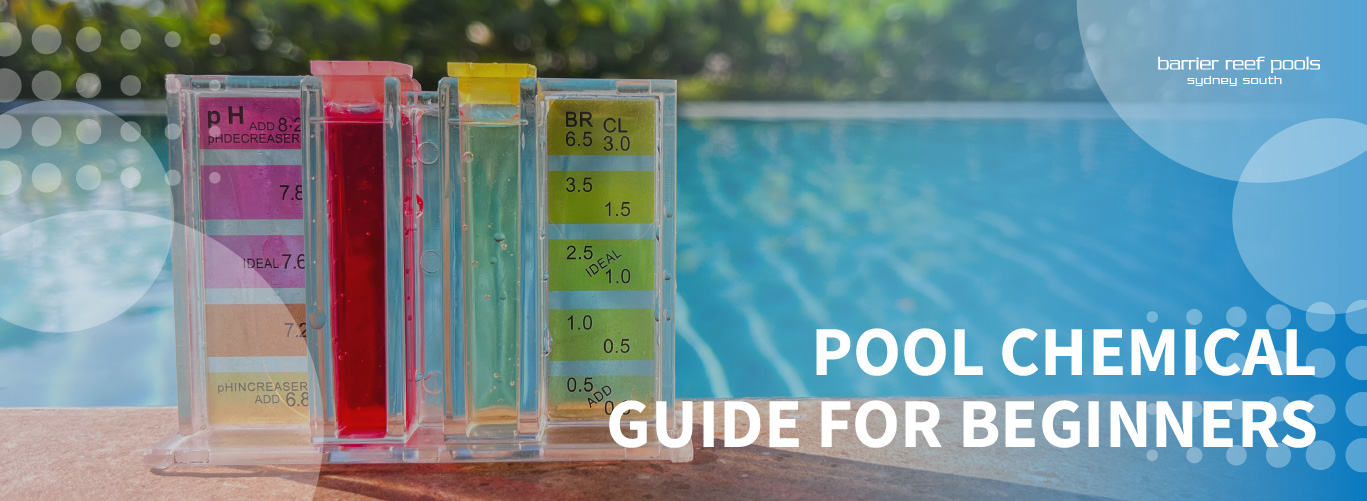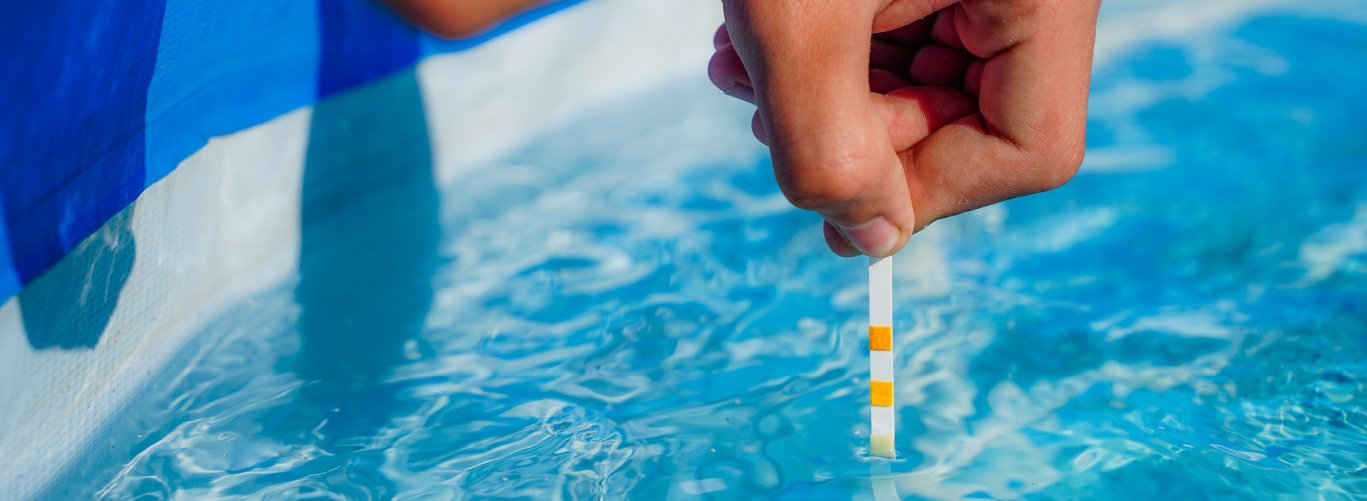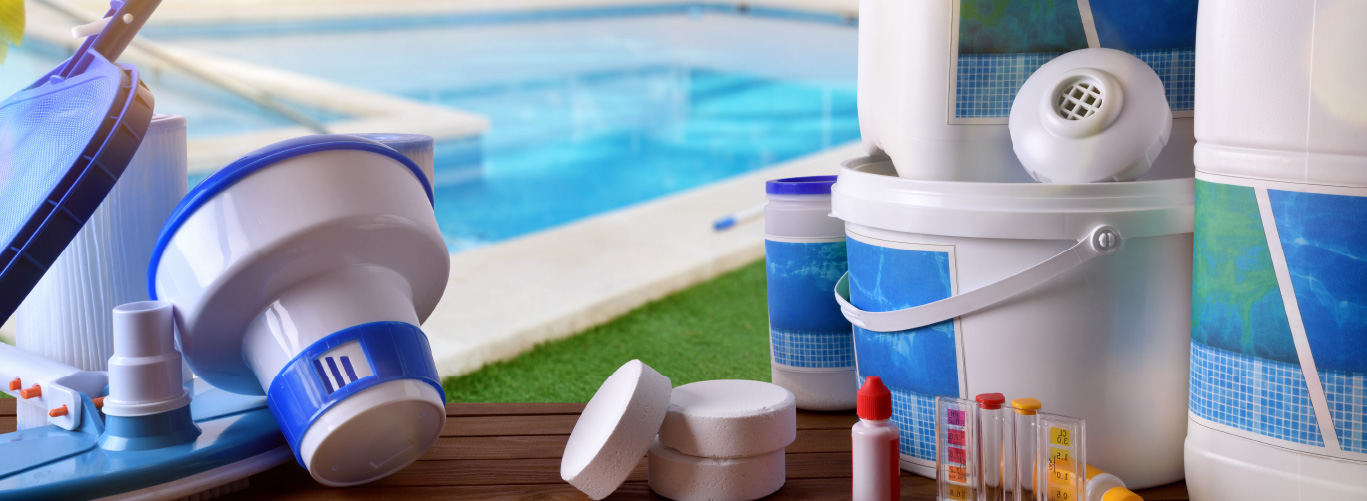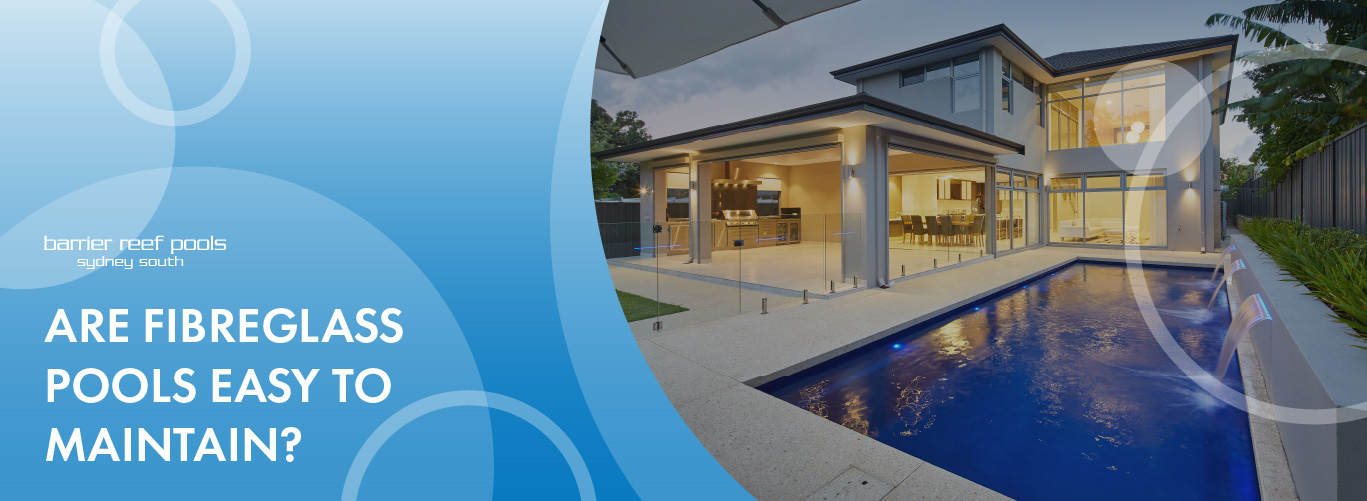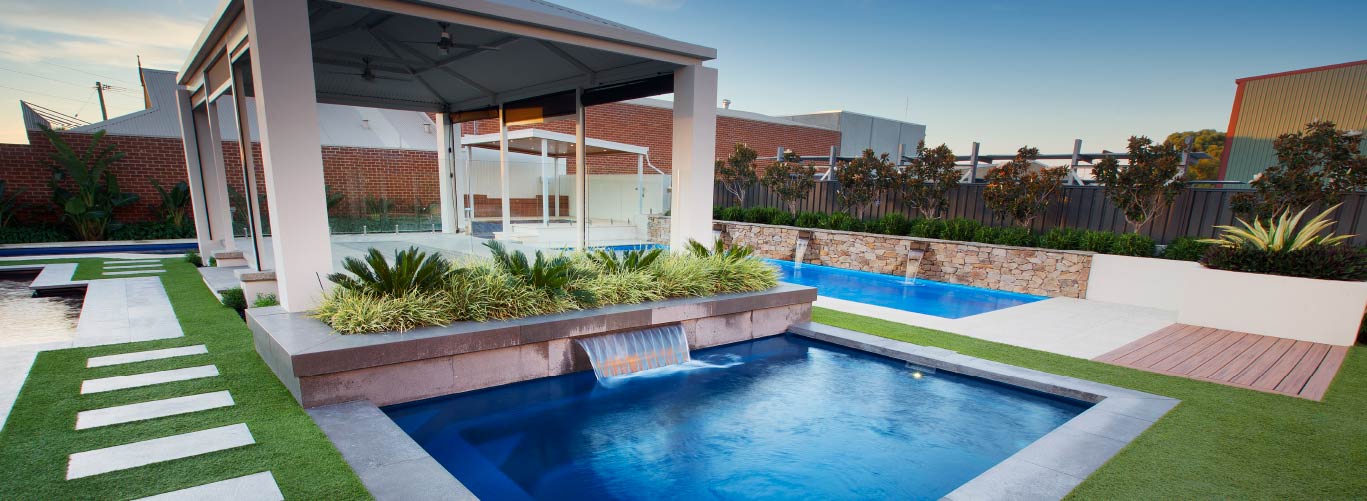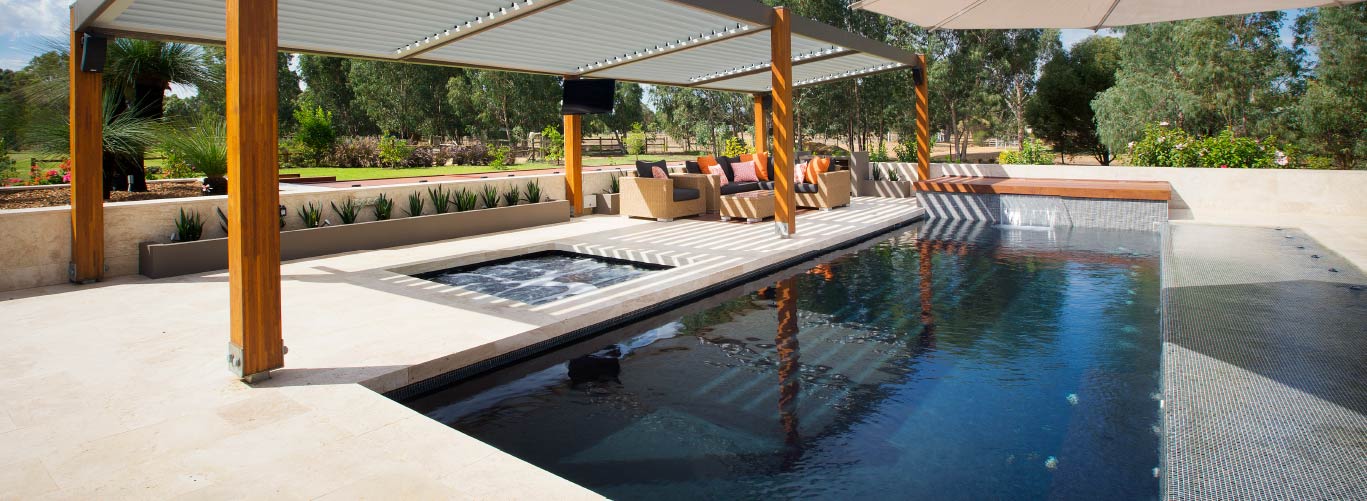How To Take Care Of Your New Fibreglass Pool
A fibreglass pool is a stunning addition to your backyard, offering a low-maintenance yet beautiful swimming environment. Not only does it provide endless hours of relaxation and fun, but it also adds value to your property. However, like all pools, a fibreglass pool requires proper care to maintain its appearance, safety, and functionality. Proper maintenance can extend the life of your pool and keep it looking as good as new for years to come. In this article, we will guide you through the essential steps to take care of your new fibreglass pool, from cleaning and chemical balance to protecting it from the elements.
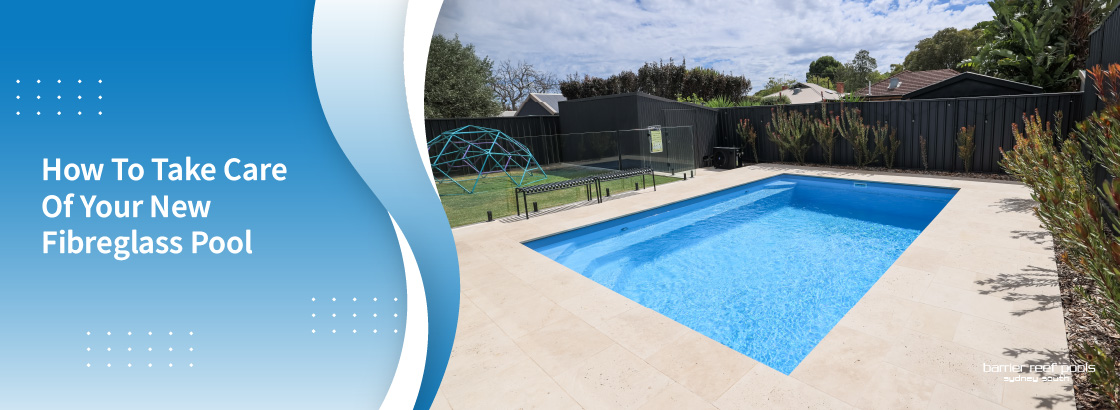
Regular Cleaning Is Key
One of the most important aspects of maintaining your fibreglass pool is keeping it clean. Regular cleaning prevents the build-up of debris, algae, and other unwanted substances that can affect the water quality and appearance of your pool. Here are some cleaning tasks to perform regularly:
1. Skim the Surface
The first step in cleaning your pool is to skim the surface. Use a pool skimmer net to remove leaves, insects, and other debris that float on the water. This simple task can prevent debris from sinking to the bottom of the pool or clogging your pool’s filtration system. It’s best to skim the pool at least once a day, especially during autumn when leaves are falling.
2. Brush the Pool Walls and Floor
Fibreglass pools are resistant to algae growth, but brushing the walls and floor of your pool will help prevent any build-up of dirt and organic matter. Use a soft pool brush to scrub the surfaces once a week, paying special attention to corners, steps, and the waterline. Be careful not to use harsh scrubbers or abrasive brushes, as these can scratch the fibreglass surface.
3. Vacuum the Pool
Vacuuming the pool helps remove debris that sinks to the bottom. You can either use a manual pool vacuum or an automatic robotic cleaner. For a manual vacuum, simply attach the vacuum head to a telescopic pole and run it across the pool floor, making sure to cover all areas. For the best results, vacuum your fibreglass pool at least once a week.
Maintaining the Right Water Chemistry
Proper water chemistry is essential for the health of both your pool and swimmers. Maintaining the correct balance of chemicals ensures that the water stays clean, clear, and safe to swim in. Here’s what you need to monitor:
1. pH Levels
The pH level of your pool water should be between 7.4 and 7.6, which is slightly alkaline. If the pH level is too low (acidic), it can lead to corrosion of pool equipment and the fibreglass surface. On the other hand, if the pH is too high (alkaline), it can cause scaling and cloudy water. Test the pH levels at least once a week using a pool testing kit or test strips, and adjust it using pH increaser or pH reducer as needed.
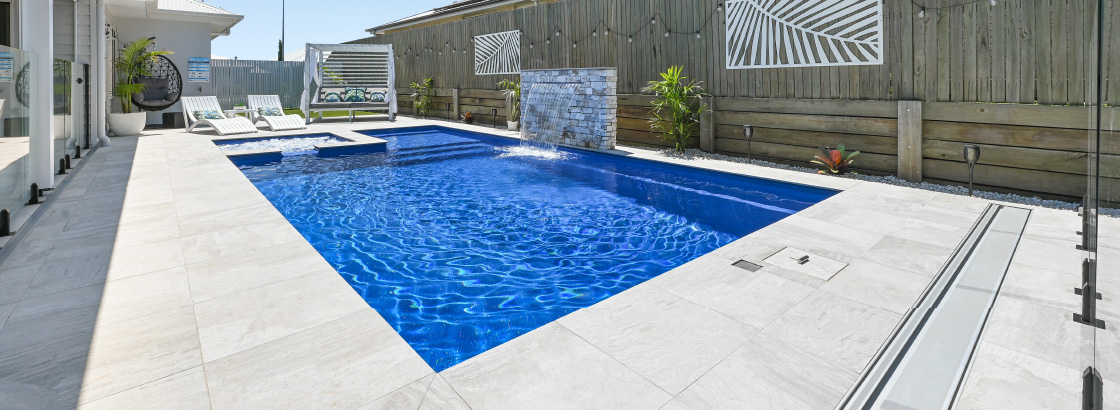
2. Chlorine Levels
Chlorine is the most common pool sanitiser and helps kill bacteria and algae. The ideal chlorine level for a fibreglass pool is between 1.0 and 3.0 parts per million (ppm). To maintain proper chlorine levels, regularly check your pool’s chemical balance and add chlorine tablets, granules, or liquid as needed. You can also use a pool chlorinator to ensure a constant and steady supply of chlorine to the pool.
3. Alkalinity and Calcium Hardness
Alkalinity and calcium hardness are two other important chemical factors that impact the quality of your pool water. Total alkalinity should be between 80 and 120 ppm, and calcium hardness should be between 200 and 400 ppm. These levels help stabilise the pH and prevent damage to the pool’s surface. Use a pool testing kit to monitor these levels and add chemicals to adjust them if necessary.
4. Shock Treatment
Shocking your pool involves adding a large dose of chlorine to eliminate contaminants like algae, bacteria, and organic matter. This is usually done after heavy rain, a pool party, or if the water appears cloudy. You should shock your pool at least once a month or more frequently if the pool has been heavily used. Be sure to follow the manufacturer’s instructions when applying pool shock, and wait for the chlorine levels to return to normal before swimming.
Protecting Your Pool from the Elements
While fibreglass pools are durable and designed to withstand the elements, it’s still important to take precautions to protect your pool from environmental damage.
1. Cover Your Pool
Using a pool cover can help protect your fibreglass pool from debris, dirt, and leaves when not in use. A pool cover also helps to retain heat and reduce the amount of chlorine loss from UV rays. During winter months or when your pool is not in use for an extended period, investing in a high-quality pool cover is essential for maintaining cleanliness and minimising wear and tear.
2. Keep the Pool Area Clean
While your pool is the main focus, don’t forget to keep the surrounding area clean as well. Overhanging branches, dirt, and even lawn clippings can end up in your pool, causing a mess and potentially affecting the water quality. Trim any overgrown vegetation around the pool area and regularly sweep or hose down the pool deck.
3. Protect the Waterline
The waterline of your fibreglass pool can accumulate stains, oils, and scum from swimmers, which can leave unsightly marks on the surface. To prevent this, use a pool waterline cleaner designed specifically for fibreglass pools. Apply the cleaner regularly to remove any build-up and keep the waterline sparkling clean.
Regular Equipment Maintenance
Your fibreglass pool’s filtration system is crucial for keeping the water clean and clear. To ensure that it continues to work efficiently, follow these equipment maintenance tips:
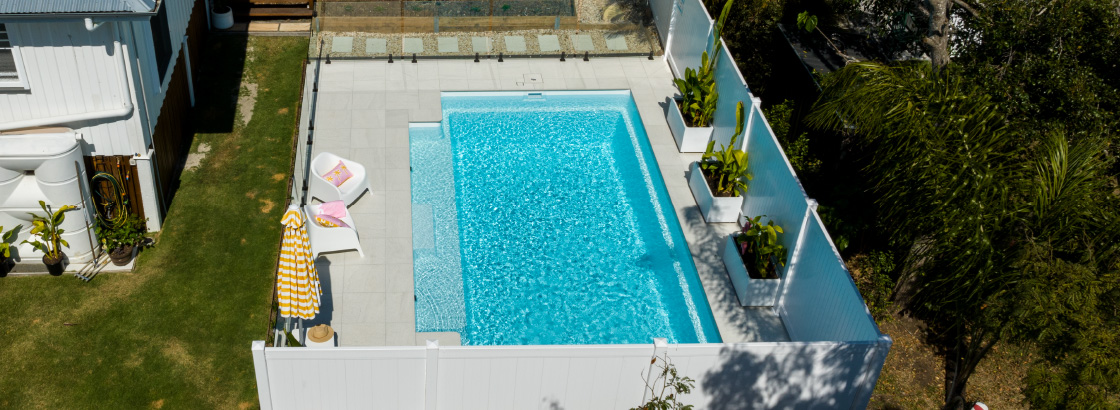
1. Clean the Pool Filter
The filter is responsible for trapping dirt and debris from the water. A clogged or dirty filter can reduce the effectiveness of the filtration system and cause poor water circulation. Clean the filter regularly according to the manufacturer’s instructions, and replace the filter media if needed. Depending on the type of filter (sand, cartridge, or diatomaceous earth), cleaning methods may vary.
2. Check the Pump and Skimmer Baskets
The pool pump circulates the water through the filtration system, while the skimmer baskets capture debris. Check the pump and skimmer baskets regularly for leaves, twigs, or other debris that may block the system. Empty the baskets and ensure that the pump is running smoothly to maintain proper water circulation.
3. Monitor Water Level
The water level in your fibreglass pool should be kept at the centre of the skimmer. If the water level is too high, the skimmer will not function correctly. If it’s too low, the pump could run dry, causing potential damage. Regularly check the water level and top it up as needed, particularly after heavy use or rainfall.
Winter Care for Fibreglass Pools
Even though fibreglass pools are durable, they still require some special care during winter to protect them from the cold and prevent damage. If you live in an area where temperatures drop below freezing, consider winterising your pool by lowering the water level, covering the pool, and ensuring that all equipment is properly stored and protected from the elements.
Taking care of your new fibreglass pool doesn’t have to be a daunting task. By performing regular cleaning, monitoring water chemistry, and taking steps to protect your pool from the elements, you can keep it in top condition for years to come. With these simple maintenance tips, you can enjoy your fibreglass pool as a safe, clean, and beautiful retreat in your backyard, all while preserving its value and longevity.
How To Take Care Of Your New Fibreglass Pool
A fibreglass pool is a stunning addition to your backyard, offering a low-maintenance yet beautiful swimming environment. Not only does it provide endless hours of relaxation and fun, but it also adds value to your property. However, like all pools, a fibreglass pool requires proper care to maintain its appearance, safety, and functionality. Proper maintenance can extend the life of your pool and keep it looking as good as new for years to come. In this article, we will guide you through the essential steps to take care of your new fibreglass pool, from cleaning and chemical balance to protecting it from the elements.
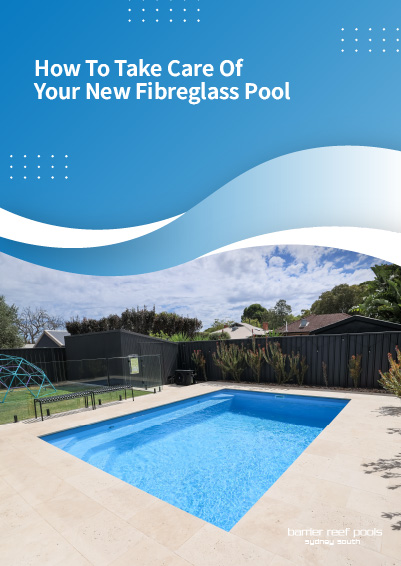
Regular Cleaning Is Key
One of the most important aspects of maintaining your fibreglass pool is keeping it clean. Regular cleaning prevents the build-up of debris, algae, and other unwanted substances that can affect the water quality and appearance of your pool. Here are some cleaning tasks to perform regularly:
1. Skim the Surface
The first step in cleaning your pool is to skim the surface. Use a pool skimmer net to remove leaves, insects, and other debris that float on the water. This simple task can prevent debris from sinking to the bottom of the pool or clogging your pool’s filtration system. It’s best to skim the pool at least once a day, especially during autumn when leaves are falling.
2. Brush the Pool Walls and Floor
Fibreglass pools are resistant to algae growth, but brushing the walls and floor of your pool will help prevent any build-up of dirt and organic matter. Use a soft pool brush to scrub the surfaces once a week, paying special attention to corners, steps, and the waterline. Be careful not to use harsh scrubbers or abrasive brushes, as these can scratch the fibreglass surface.
3. Vacuum the Pool
Vacuuming the pool helps remove debris that sinks to the bottom. You can either use a manual pool vacuum or an automatic robotic cleaner. For a manual vacuum, simply attach the vacuum head to a telescopic pole and run it across the pool floor, making sure to cover all areas. For the best results, vacuum your fibreglass pool at least once a week.
Maintaining the Right Water Chemistry
Proper water chemistry is essential for the health of both your pool and swimmers. Maintaining the correct balance of chemicals ensures that the water stays clean, clear, and safe to swim in. Here’s what you need to monitor:
1. pH Levels
The pH level of your pool water should be between 7.4 and 7.6, which is slightly alkaline. If the pH level is too low (acidic), it can lead to corrosion of pool equipment and the fibreglass surface. On the other hand, if the pH is too high (alkaline), it can cause scaling and cloudy water. Test the pH levels at least once a week using a pool testing kit or test strips, and adjust it using pH increaser or pH reducer as needed.
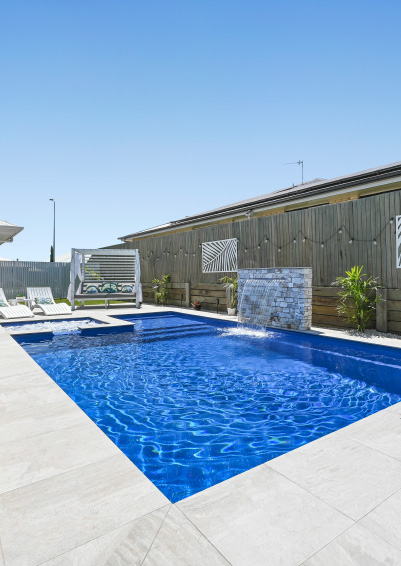
2. Chlorine Levels
Chlorine is the most common pool sanitiser and helps kill bacteria and algae. The ideal chlorine level for a fibreglass pool is between 1.0 and 3.0 parts per million (ppm). To maintain proper chlorine levels, regularly check your pool’s chemical balance and add chlorine tablets, granules, or liquid as needed. You can also use a pool chlorinator to ensure a constant and steady supply of chlorine to the pool.
3. Alkalinity and Calcium Hardness
Alkalinity and calcium hardness are two other important chemical factors that impact the quality of your pool water. Total alkalinity should be between 80 and 120 ppm, and calcium hardness should be between 200 and 400 ppm. These levels help stabilise the pH and prevent damage to the pool’s surface. Use a pool testing kit to monitor these levels and add chemicals to adjust them if necessary.
4. Shock Treatment
Shocking your pool involves adding a large dose of chlorine to eliminate contaminants like algae, bacteria, and organic matter. This is usually done after heavy rain, a pool party, or if the water appears cloudy. You should shock your pool at least once a month or more frequently if the pool has been heavily used. Be sure to follow the manufacturer’s instructions when applying pool shock, and wait for the chlorine levels to return to normal before swimming.
Protecting Your Pool from the Elements
While fibreglass pools are durable and designed to withstand the elements, it’s still important to take precautions to protect your pool from environmental damage.
1. Cover Your Pool
Using a pool cover can help protect your fibreglass pool from debris, dirt, and leaves when not in use. A pool cover also helps to retain heat and reduce the amount of chlorine loss from UV rays. During winter months or when your pool is not in use for an extended period, investing in a high-quality pool cover is essential for maintaining cleanliness and minimising wear and tear.
2. Keep the Pool Area Clean
While your pool is the main focus, don’t forget to keep the surrounding area clean as well. Overhanging branches, dirt, and even lawn clippings can end up in your pool, causing a mess and potentially affecting the water quality. Trim any overgrown vegetation around the pool area and regularly sweep or hose down the pool deck.
3. Protect the Waterline
The waterline of your fibreglass pool can accumulate stains, oils, and scum from swimmers, which can leave unsightly marks on the surface. To prevent this, use a pool waterline cleaner designed specifically for fibreglass pools. Apply the cleaner regularly to remove any build-up and keep the waterline sparkling clean.
Regular Equipment Maintenance
Your fibreglass pool’s filtration system is crucial for keeping the water clean and clear. To ensure that it continues to work efficiently, follow these equipment maintenance tips:
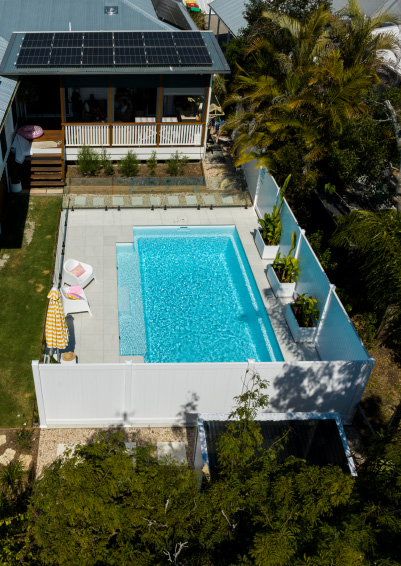
1. Clean the Pool Filter
The filter is responsible for trapping dirt and debris from the water. A clogged or dirty filter can reduce the effectiveness of the filtration system and cause poor water circulation. Clean the filter regularly according to the manufacturer’s instructions, and replace the filter media if needed. Depending on the type of filter (sand, cartridge, or diatomaceous earth), cleaning methods may vary.
2. Check the Pump and Skimmer Baskets
The pool pump circulates the water through the filtration system, while the skimmer baskets capture debris. Check the pump and skimmer baskets regularly for leaves, twigs, or other debris that may block the system. Empty the baskets and ensure that the pump is running smoothly to maintain proper water circulation.
3. Monitor Water Level
The water level in your fibreglass pool should be kept at the centre of the skimmer. If the water level is too high, the skimmer will not function correctly. If it’s too low, the pump could run dry, causing potential damage. Regularly check the water level and top it up as needed, particularly after heavy use or rainfall.
Winter Care for Fibreglass Pools
Even though fibreglass pools are durable, they still require some special care during winter to protect them from the cold and prevent damage. If you live in an area where temperatures drop below freezing, consider winterising your pool by lowering the water level, covering the pool, and ensuring that all equipment is properly stored and protected from the elements.
Taking care of your new fibreglass pool doesn’t have to be a daunting task. By performing regular cleaning, monitoring water chemistry, and taking steps to protect your pool from the elements, you can keep it in top condition for years to come. With these simple maintenance tips, you can enjoy your fibreglass pool as a safe, clean, and beautiful retreat in your backyard, all while preserving its value and longevity.

